“International Confucianism Forum-2024” held at Renmin University of China
Apr 09 , 2025School of Philosophy of Renmin University of China
On November 30, “International Confucianism Forum-2024” was jointly organized by Renmin University of China and Chey Institute for Advanced Studies at Renmin University of China . With the theme of “Confucianism and the World”, the forum was attended by more than 200 experts and scholars from China, South Korea, Japan, Britain, France, Germany, Australia and other countries.
Lin Shangli, President of Renmin University of China; Kim Yuseok, Dean of Chey Institute for Advanced Studies ; Zhang Liwen, Honorary Dean of Confucius Institute of Renmin University of China;Feng Jun, Former Deputy Director of the Party History Research Center of the CPC Central Committee and Former Member of the Executive Committee of the Institute of Party History and Literature of the CPC Central Committee; and Lu Cairong, Former Deputy Director-General of China International Communications Group and Deputy Chairman of the Publishers Association of China; and others attended the opening ceremony of the forum. Zheng Shuiquan, Deputy Secretary of the Party Committee of Renmin University of China, presided over the event.
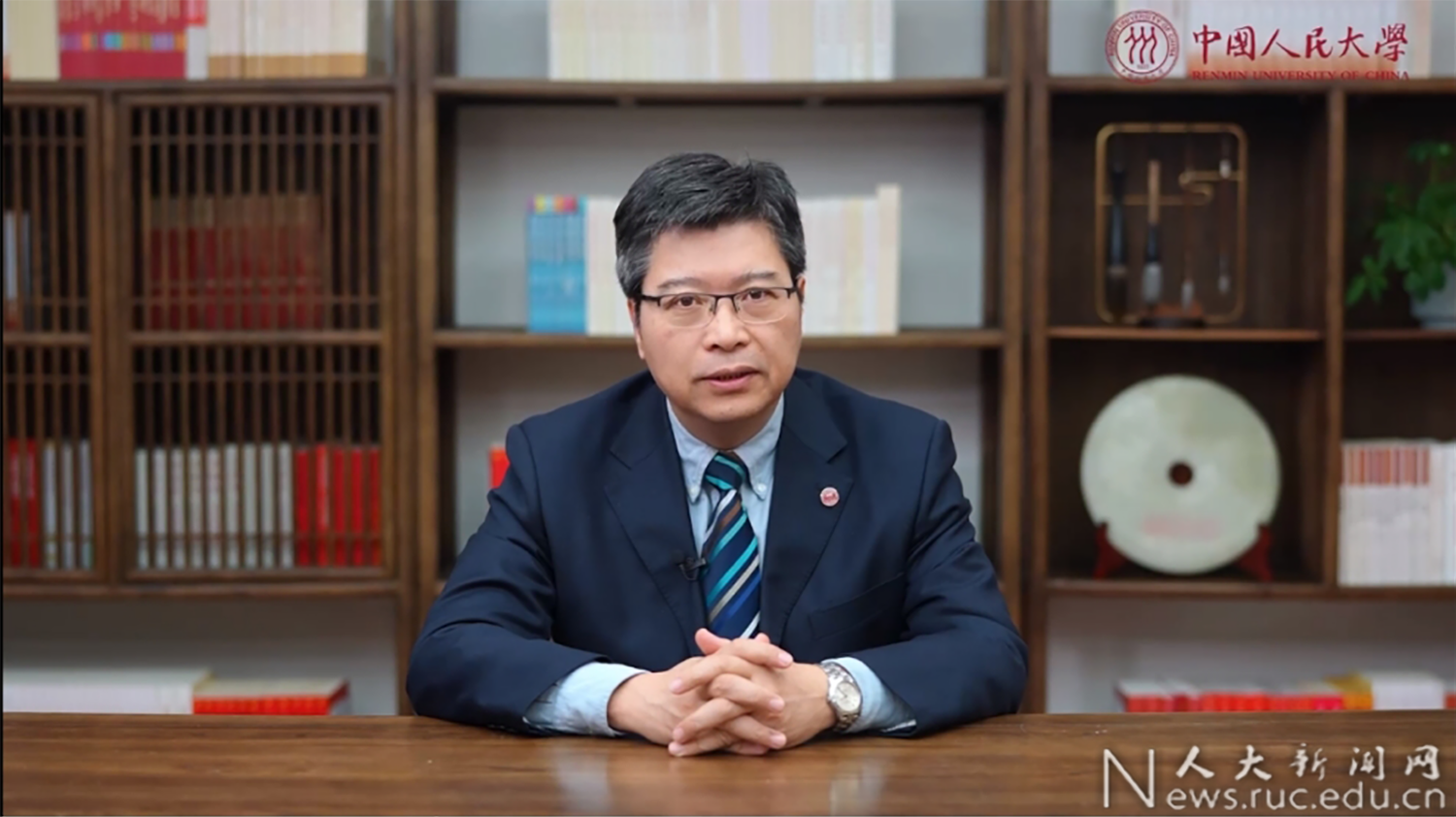
In his video address, Lin Shangli highlighted that this International Confucianism Forum coincides with significant milestones, including the 10th anniversary of President Xi Jinping's attendance at the International Symposium in Commemoration of the 2,565th Anniversary of the Birth of Confucius and the Fifth General Aseembly of the International Confucian Association (ICA), where he delivered an important speech, and the first anniversary of the Global Civilization Initiative. These timing elements carry special cultural significance. The values of benevolence(ren), propriety(li) advocated by Confucianism have universal significance that transcends national boundaries and times, and are the universal spiritual wealth for humanity. They are of great practical significance in resolving crises, defusing conflicts and promoting the building of a community with a shared future for mankind. Renmin University of China strongly supports the construction of Chinese philosophy displines, takes the lead in setting up the Confucius Institute, which has conducted in-depth global-oriented Confucian studies. Taking this forum as an opportunity, the university will uphold fundamental principles and break new ground, courageously shoulder cultural missions, and advance exchanges and mutual learning among civilizations. It looks forward to experts at the forum collectively tapping into Confucianism's profound heritage, using its wisdom to illuminate the path toward a brighter future for human civilization.
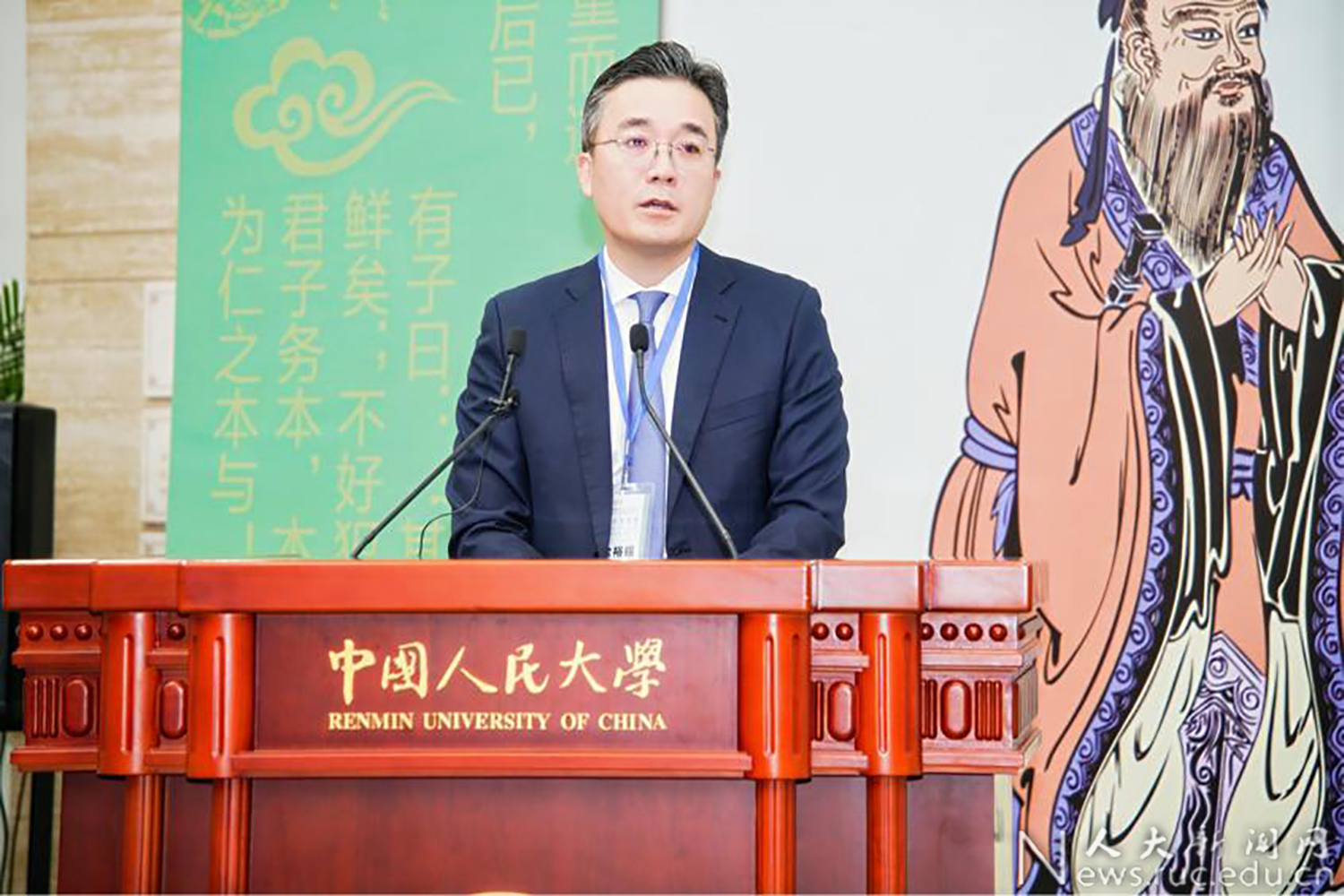
According to Kim Yuseok, Chey Institute for Advanced Studies has three core missions: “To identify and respond to emerging global risks,” “To explore the challenges and opportunities brought by scientific and technological advances to humanity,” and “To generate and disseminate knowledge that is beneficial to the common human welfare,” In an era of rapid AI development, Confucian humanistic concepts can guide technological innovation from an ethical dimension, ensuring that innovations serve humanity. Confucius' principle of "harmony without uniformity" emphasizes mutual respect and understanding, resonating deeply with today's global vision. The Chey Institute for Advanced Studies will continue to draw on Confucian wisdom to contribute to contemporary peace and development.
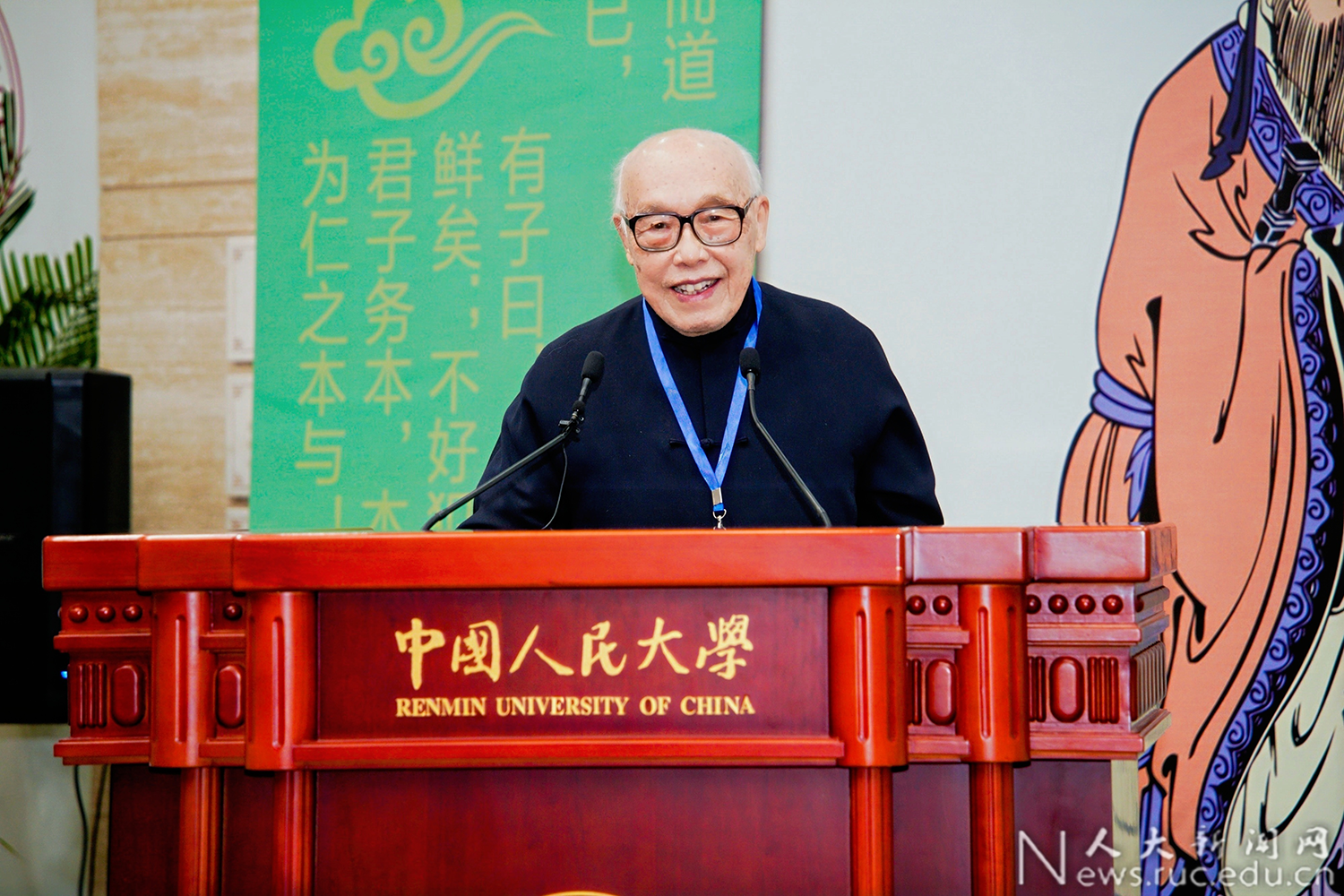
Zhang Liwen reviewed the history of exchanges and cooperation between Renmin University of China and Korean academia. Since 1989, Renmin University of China has held the 11th International Conference on Tui Xi Xue(a Confucian school of thought in Korea). Over the years, Renmin University of China has engaged in close cooperation with Korean academia, co-hosting the "International Confucian Forum" with the Korea Foundation for Advanced Studies for several consecutive years. This collaboration has won significant attention from academic and cultural circles both domestically and internationally. Zhang expressed gratitude to the Chey Institute for Advanced Studies and participating experts and scholars from around the world, hoping that this forum would create new opportunities for future cooperation and exchanges among all parties.

Feng Jun stated that General Secretary Xi Jinping attaches great importance to fine traditional Chinese culture, and has put forward a series of important expositions. Such as firming up cultural confidence and uphold fundamental principles and break new ground, which provide a scientific worldview and methodology for the study of Confucius and Confucianism, it points out the direction for the development of contemporary Confucianism. He hoped that the teaching and research team of Chinese philosophy at Renmin University of China will move forward along this correct direction and continue to make due contributions to the construction of the discipline of philosophy and the prosperous development of Confucianism.
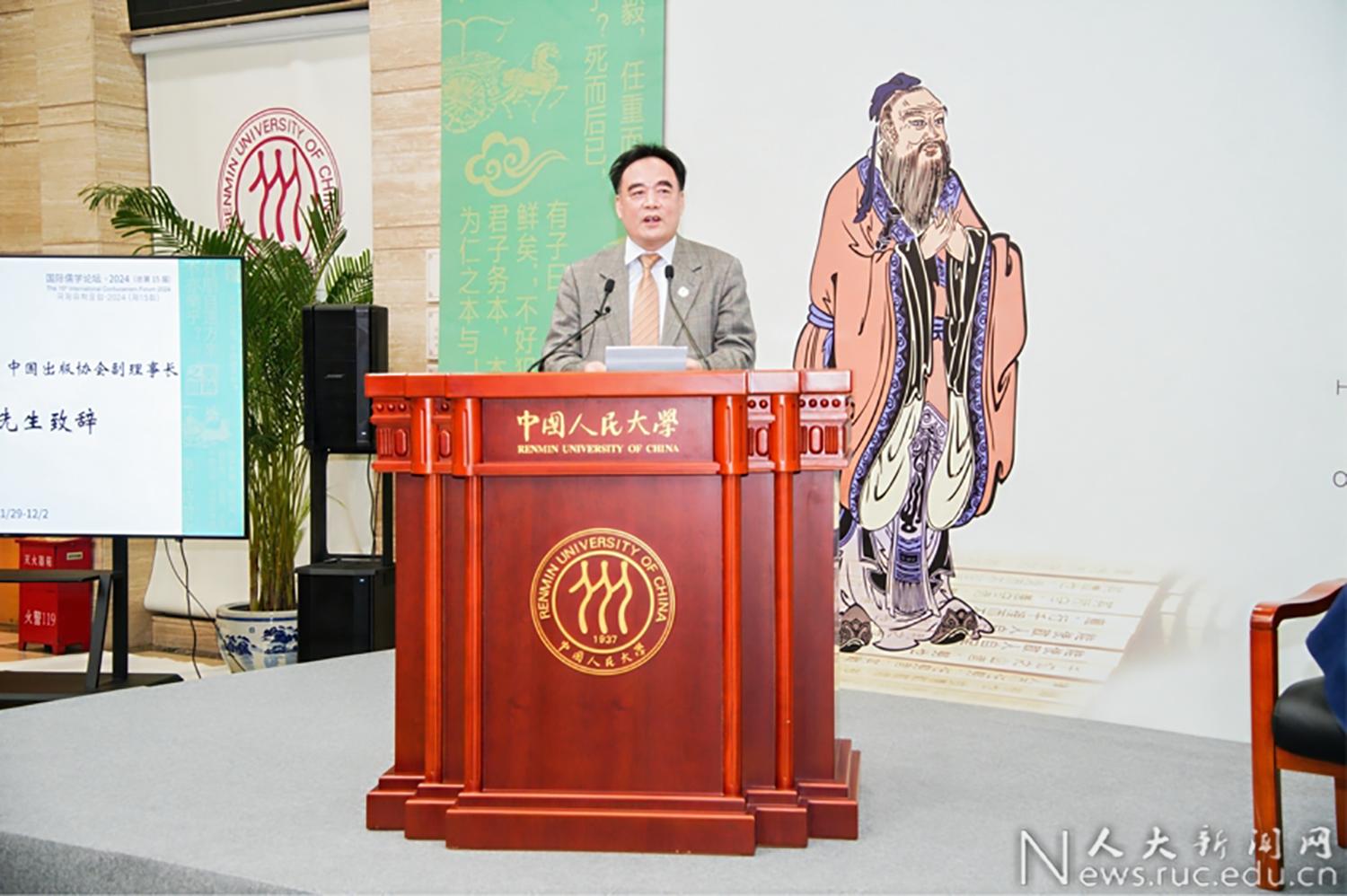
Lu Cairong stated that General Secretary Xi Jinping has proposed the Global Civilization Initiative, emphasizing the need to promote exchanges and mutual learning among different civilizations. In this context, it is of great historical significance to actively promote the international dissemination of Confucianism. At present, global challenges are intensifying in different fields such as international relations, economic development and regional security. All countries in the world should strengthen cooperation and jointly respond to these challenges. In this critical historical process, Confucianism's ideology of “benevolence” and the concept of “hehe”(harmony and unity) will make a significant contribution to contemporary peace and development.
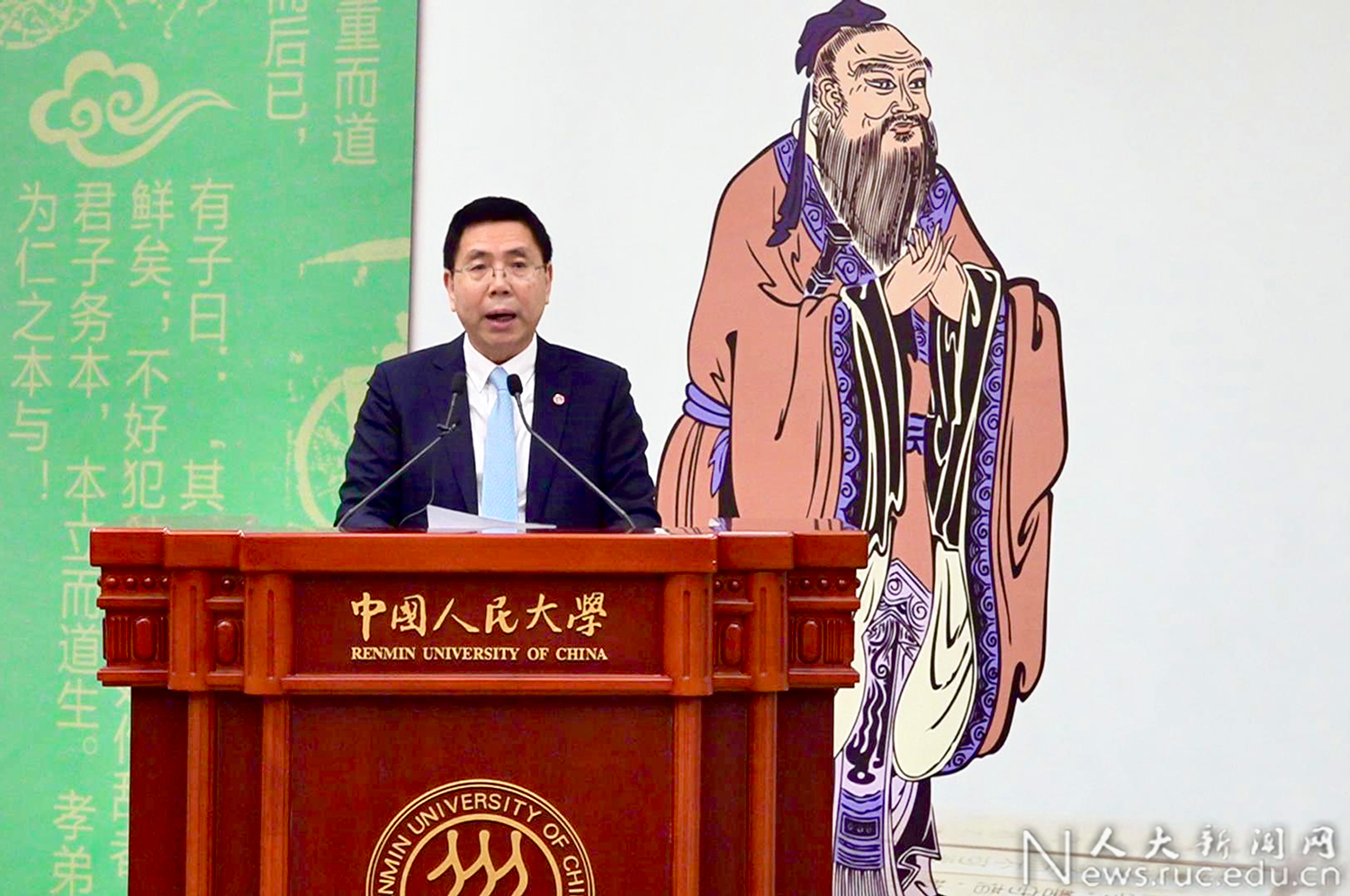
Zheng Shuiquan, Deputy Secretary of the Party Committee of Renmin University of China, presided over the opening ceremony of the forum.
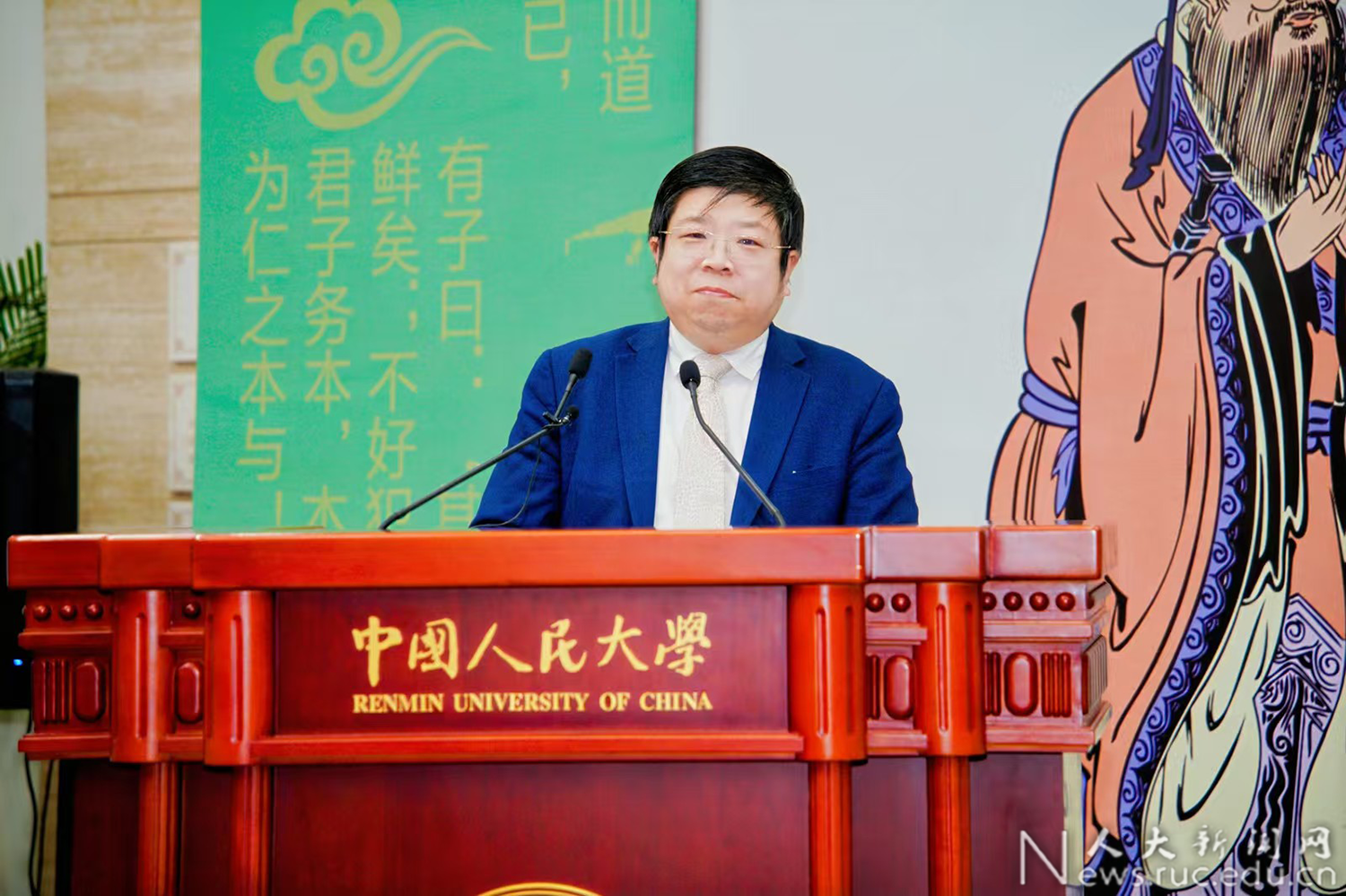
At the report conference, Zang Fengyu, Dean of the School of Philosophy at Renmin University of China, released a research report on the “Construction of Cultural Subjectivity and Mutual Enlightenment of Civilizations”. The report highlighted that “perpetual Growth and Change”(shengsheng) and “harmony” are the spiritual essences of Chinese civilization, with fine traditional Chinese culture—especially Confucianism
— serving as a vital force in addressing changes. It emphasized that resolving the "debate between ancient and modern, Chinese and Western" should focus on civilizational continuity rather than rupture of tradition, and on harmonious cultural development rather than civilizational conflict. The report also explored the significance of mutual learning among civilizations, stating that strengthening such exchanges requires achieving shared understandings and common empathy among different civilizations, while integrating traditional and modern academic explorations through a clear cultural subjectivity.
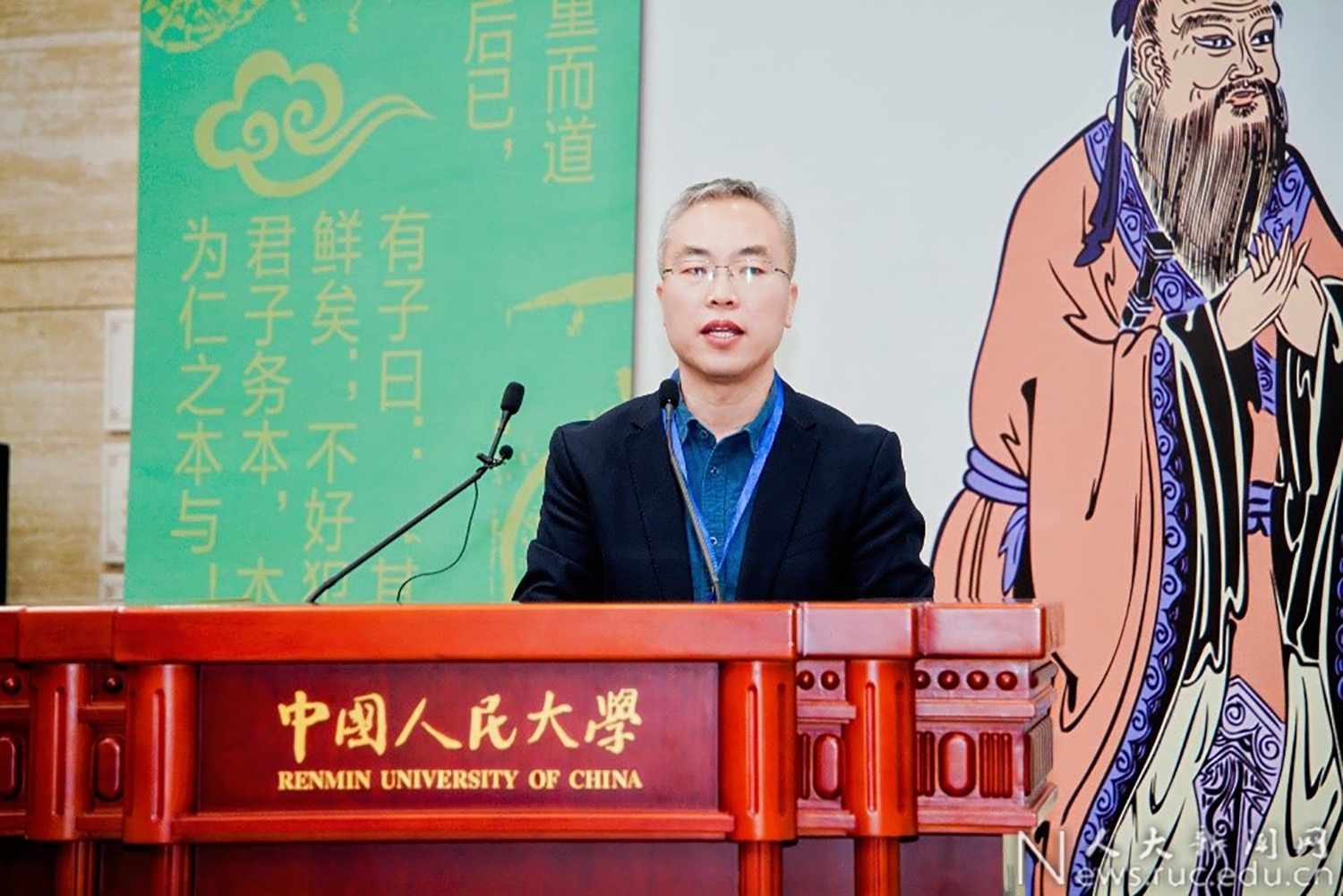
Shi De Cai, Secretary of the Party Committee of the School of Philosophy of Renmin University of China, presided over the report launch.
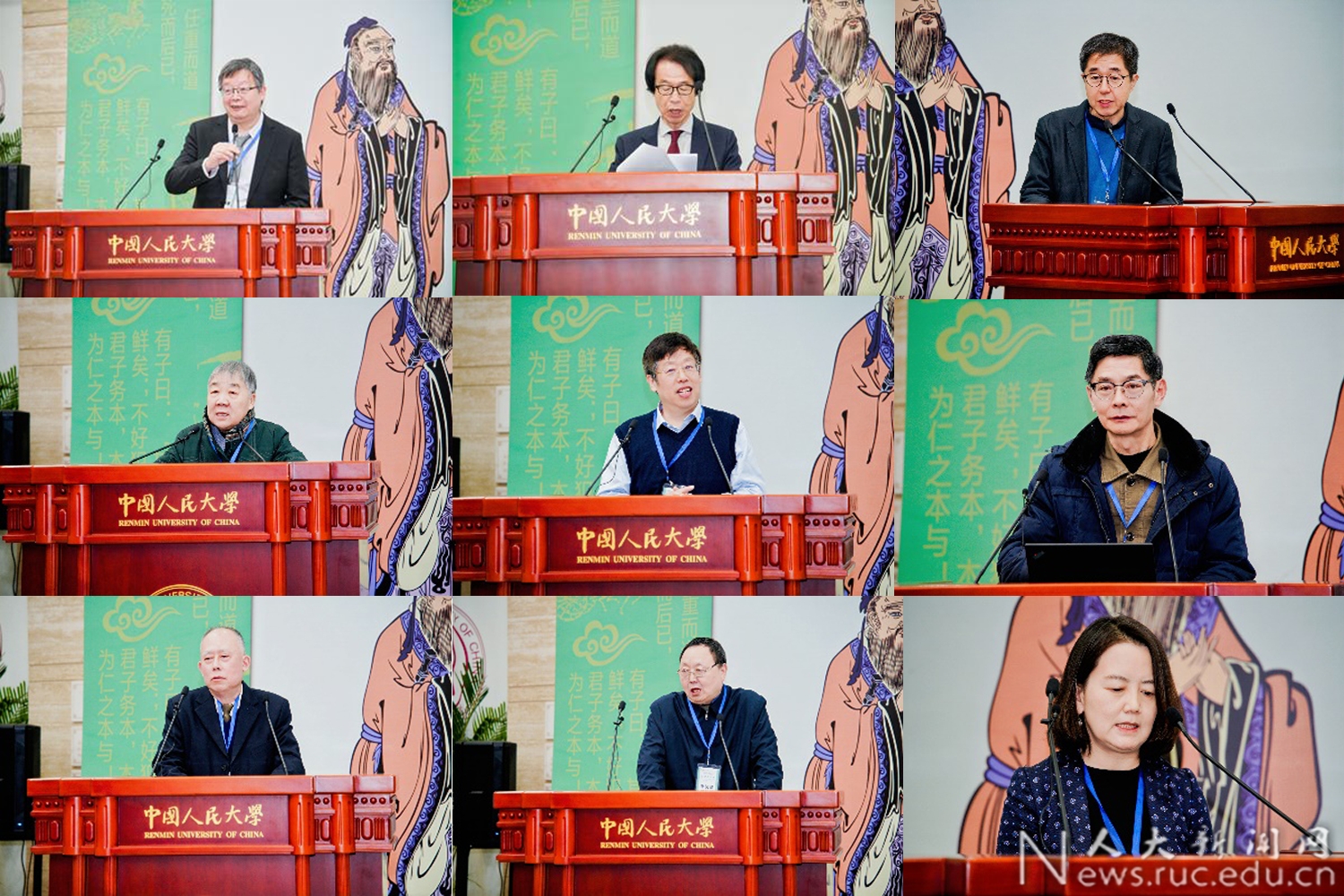
The conference speech session was chaired by Peng Yongjie, Dean of the Confucius Institute at Renmin University of China. Speakers included:Choi Young-jin, Professor at Sungkyunkwan University; Jung Won-jae, Chair of the Department of Philosophy at Seoul National University, on "Two Approaches to Yi Eul (Yi Yulgok) Studies"; Li Suping, Researcher at the Institute of Philosophy of Chinese Academy of Social Sciences, on "Development of East Asian Confucian Studies"; Xu Yong, President of the Traditional Culture Education Branch of the China Society of Education, on "Confucian Education in Primary and Secondary Schools"; Xiang Shiling, Vice President of the Chinese Society for the History of Philosophy and Professor at the School of Chinese Classics, Renmin University of China, on "Inter-civilizational Mutual Learning and the Spirit of 'Ren' (Benevolence)"; Cai Fanglu, Professor at Sichuan Normal University, on "Neo-Confucianism in the Song and Ming Dynasties and Classical Scholarship"; Xu Yiming, Professor at Yuelu Academy, Hunan University, on "Harmony and Cooperation Theory and the Humanistic Spirit of Chinese Culture"; Wang Xinzhu, Associate Dean of the International Confucian Institute at China University of Political Science and Law, on "Exploration of Modern Chinese Culture".
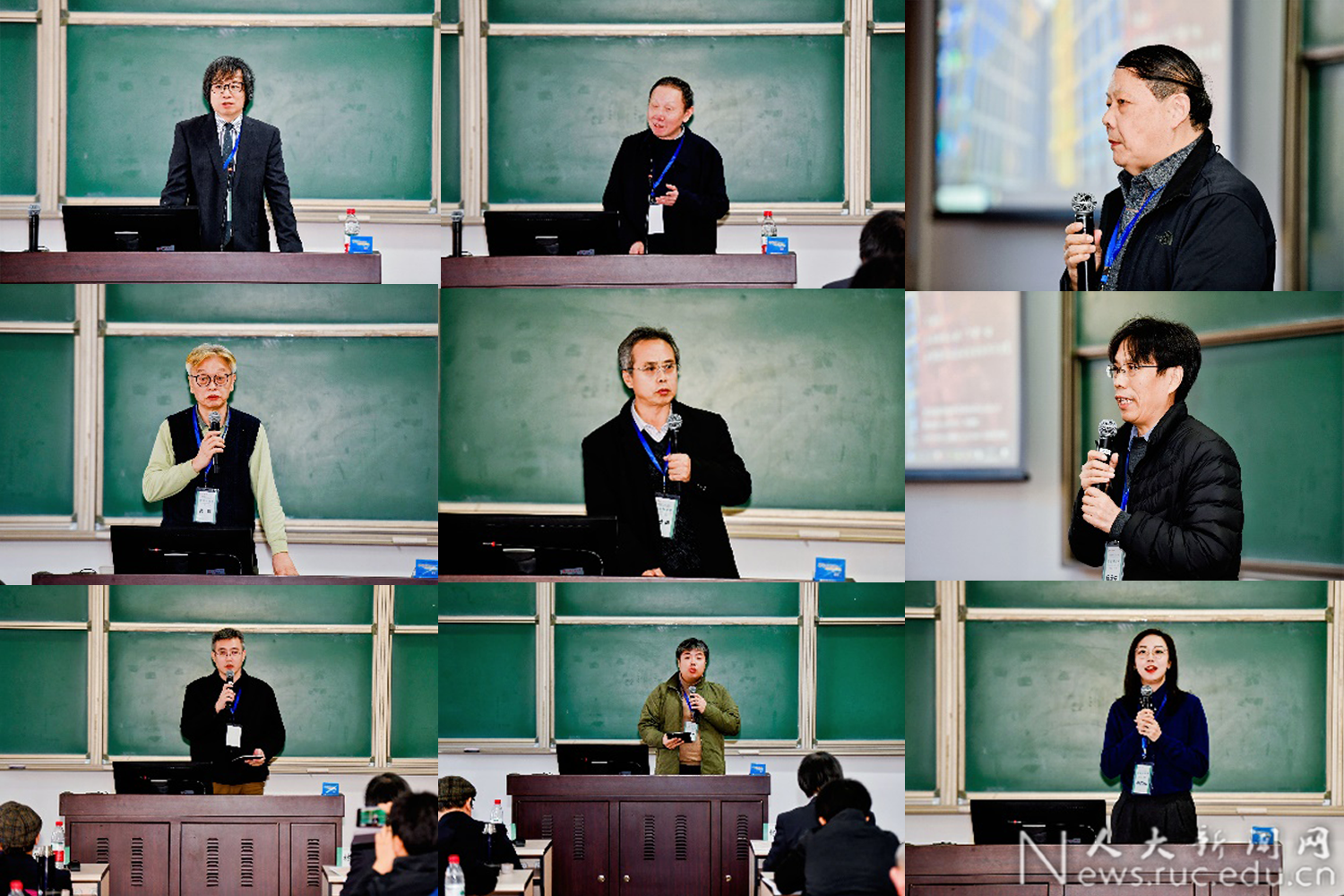
The morning session of keynote speeches was presided over by Lin Meimao, Associate Dean of the Confucius Institute at Renmin University of China. Speakers included:Zhang Huaicheng, Former Dean of the School of Public Administration at Hunan Normal University, on "Construction of Chinese Philosophy's Discourse System"; Li Zonggui, Professor in the Department of Philosophy at Sun Yat-sen University, on "Theoretical and Practical Significance of Harmony and Cooperation Theory"; Wu Zhen, President of the Shanghai Confucian Association and Professor at the School of Philosophy, Fudan University, on "Debate on 'Harmony vs. Uniformity' and the Theoretical Origins of Harmony and Cooperation Theory"; Gao Shitao, Executive Vice President of the Hebei Confucian Association, on "Practical Exploration of Ritual Education and Ethical Norms through Classic Recitation"; Yang Qingzhong, Dean of the School of Chinese Classics at Renmin University of China, on "Confucian Responses to Contemporary Real-world Issues"; Zhang Yonglu, Researcher at the Tianjin Academy of Social Sciences, on "Harmony and Cooperation Theory for the Future"; Zhang Jianmin, Executive Vice President of Hebei Academy of Fine Arts, on "Role of Harmony and Cooperation in Art Education"; Qiao Yu from Haidian Jingde Academy, on "Spiritual Growth of Teachers in the New Era".
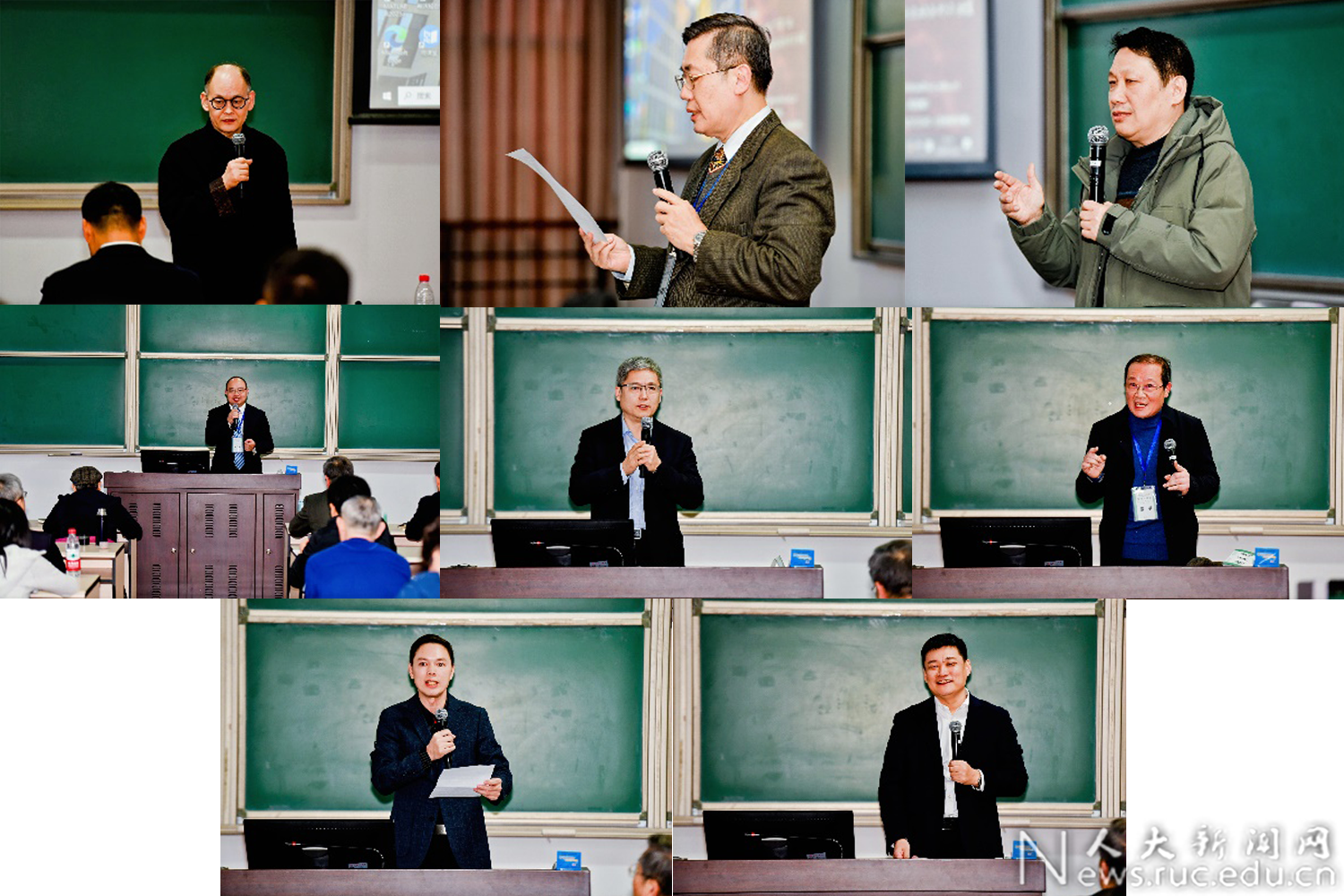
The afternoon session of keynote speeches was presided over by Luo Anxian, Professor in the School of Philosophy at Renmin University of China. Speakers included:Chen Fubin, Former Director of the Department of Philosophy at Fu Jen Catholic University; Li Chenggui, Professor in the Department of Philosophy at Nanjing University; Li Fangze, Party Secretary of Anhui Vocational and Technical College; Wang Jie, President of the China Society of Shixue and Professor at the Party School of the CPC Central Committee(National Academy of Governance); Dong Ping, Vice President of the International Confucian Association and Professor in the Department of Philosophy at Zhejiang University; Tang Tianwei, Vice Chairman of the Taizhou Federation of Social Science Associations; Kong Deli, Dean of the China Confucius Research Institute, speak on "Endogenous Impetus for the Development of Chinese Philosophy", "The 'Heart’s Boundless Capacity' Proposition in the History of Chinese Philosophy", on "European Enlightenment Thinkers' Adoption of Confucian Ideas" "China’s 'Axial Civilization'", "Tiantai Mountain’s Hehe Culture: Tradition and Innovation","Core Essence of Harmony and Cooperation Theory"and so on.
The forum also establish six sub-forums: “‘Harmony and Cooperation Theory in Modern Interpretation’ - Innovation and Development of ‘Harmony and Cooperation Theory’ in Exchange and Mutual learning among civilizations”“Compilation and Research of International Confucian Canon”“ ‘Dissemination and Influence of Confucian Canonical Texts in the Western World’” “New Progress in the Study of Confucianism in East Asia”“Mutual Learning among Civilizations and Development of Confucianism” and “Future Prospects of Confucianism and Human Civilization”, were held, in which the participating experts and scholars carried out exchanges and discussions on different topics.
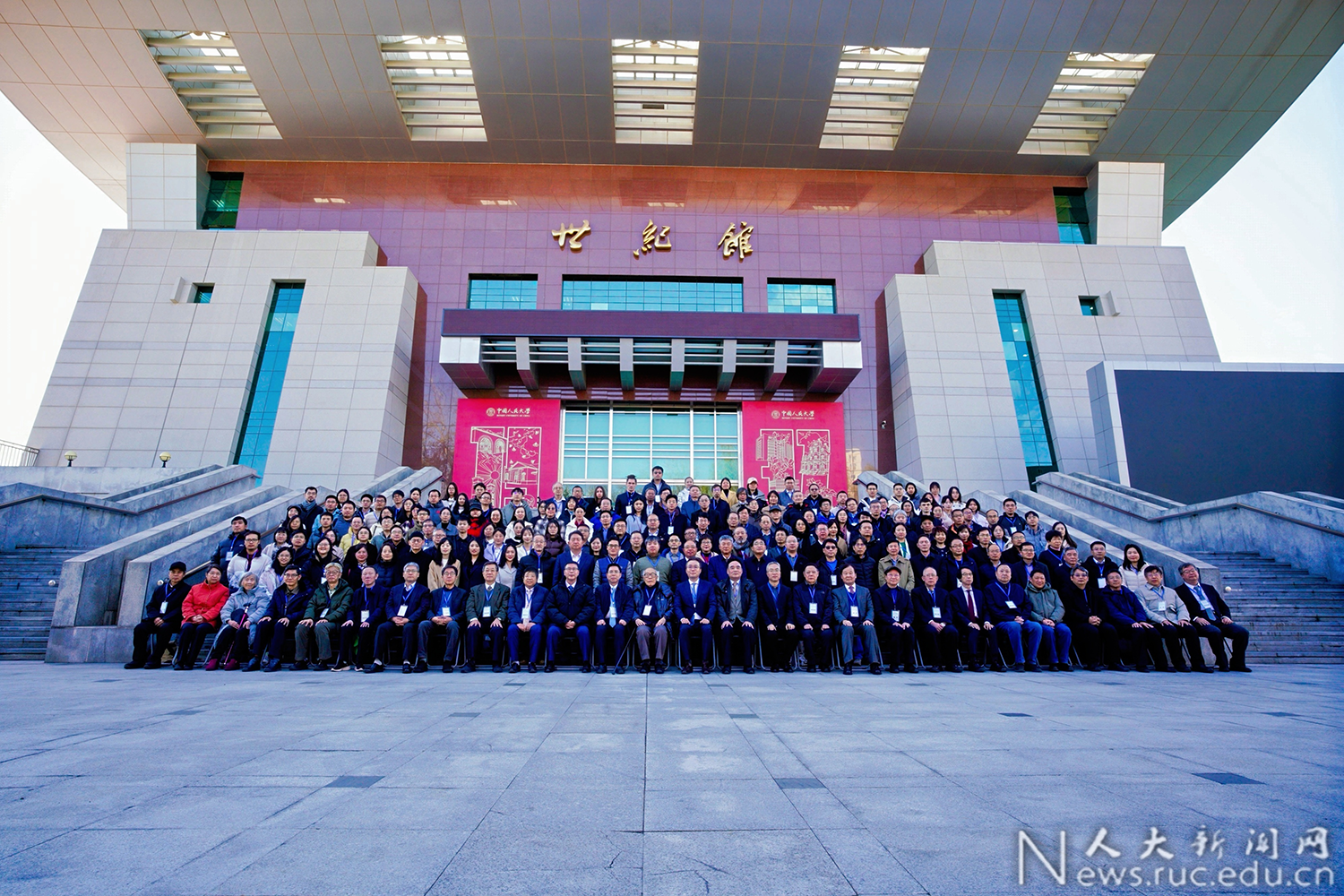
Before the opening ceremony, Zheng Shuiquan met with Kim Yuseok and his delegation.He expressed his gratitude to Chey Institute for Advanced Studies for the support given to the International Confucianism Forum, Zheng also hoped that the two sides would further deepen the cooperation in the field of Confucianism research and contribute to the promotion of exchanges and mutual learning among civilizations.
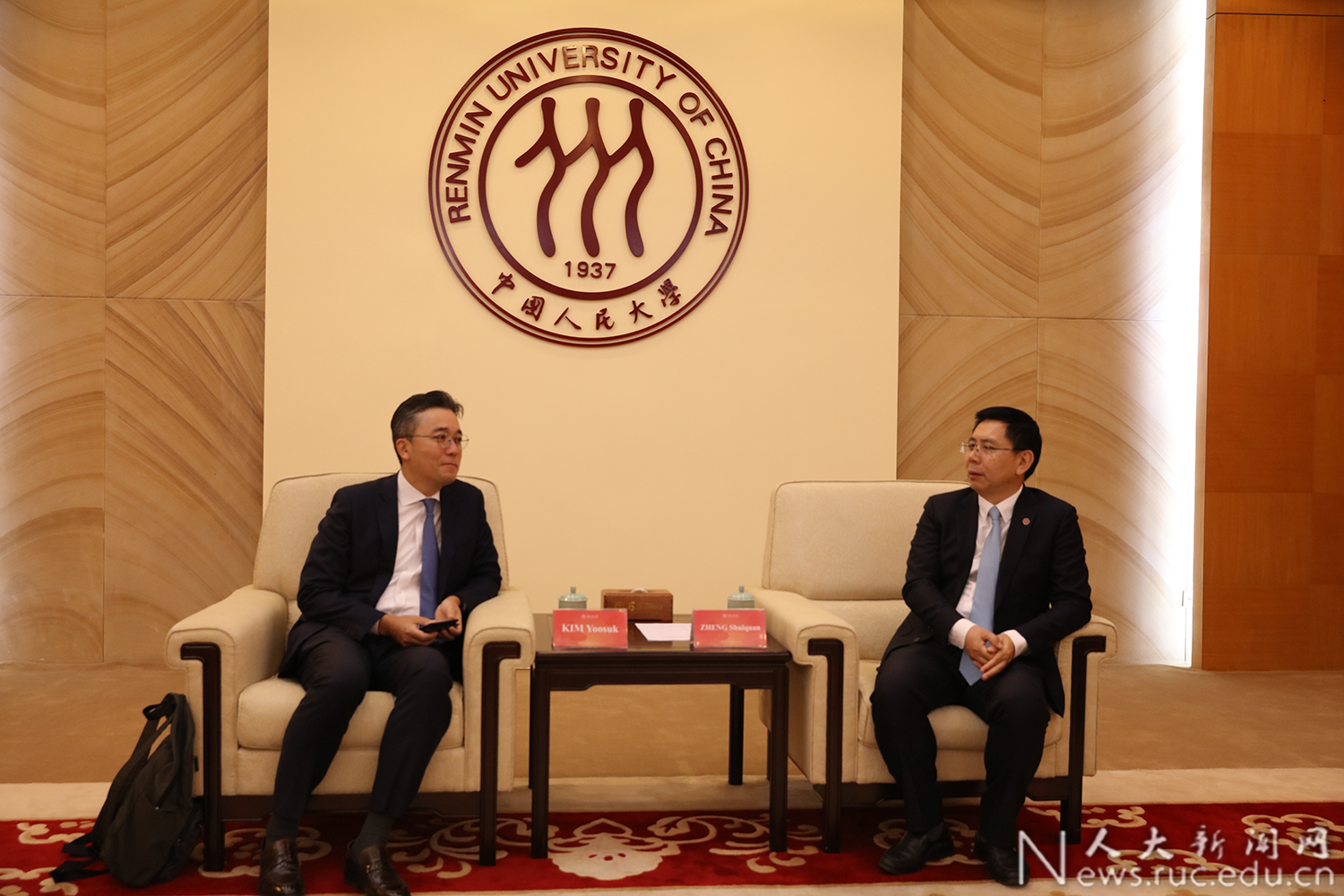
The "International Confucian Forum," established in 2004, has been held 15 times , evolving into a grand academic assembly and a hallmark projeci in the field of Confucian studies. It has exerted extensive influence in academic and cultural circles both domestically and internationally. This forum has collected nearly 180 academic reports and papers, covering a wide range of topics such as the intellectual history of Confucianism in China and abroad, the global dissemination of Confucianism, and the integration of Confucianism with Marxism.

